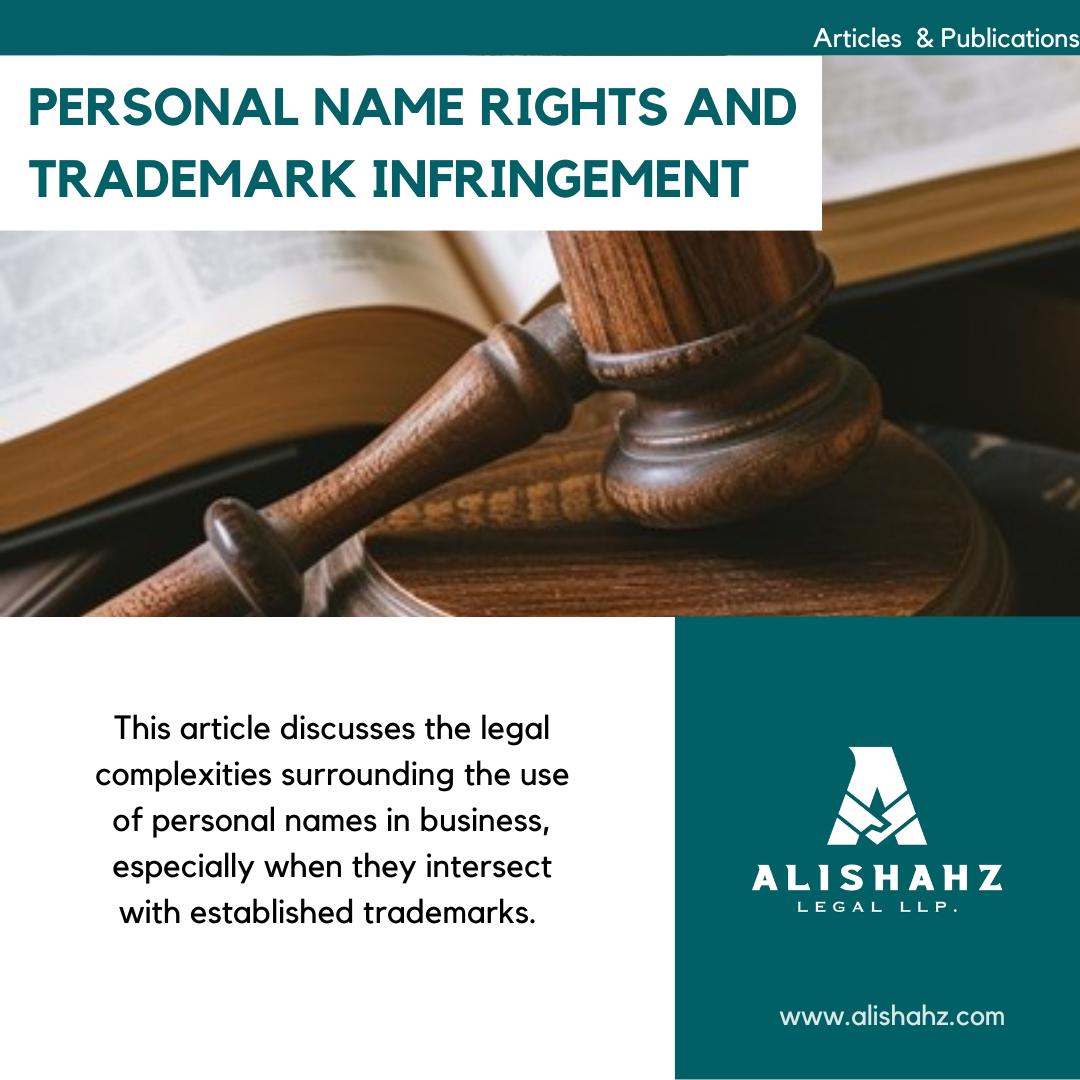Adv. Lazim Vengattil, Associate, Alishahz Legal LLP
INTRODUCTION
Personal names are more than just identifiers; they can act as valuable commercial assets. For celebrities, entrepreneurs, and businesses, a personal name often carries significant brand value and goodwill. As businesses increasingly leverage brand names, including personal names, to establish market identity, the legal nuances surrounding these issues become ever more significant. The use of a personal name in commerce, while seemingly straightforward, can lead to complex legal disputes when it intersects with established trademarks.
PERSONAL NAME RIGHTS
Personal name rights, often referred to as the “right of publicity,” protect an individual’s name, likeness, and other personal identifiers from unauthorized commercial use. This right ensures that individuals have control over how their identity is used and prevents others from exploiting their name for commercial gain without permission.
In India, personal name rights are not explicitly codified under a specific statute. Instead, they are protected under a combination of common law principles, the Indian Constitution, and various statutes. Article 21 of the Indian Constitution, which guarantees the right to life and personal liberty, has been interpreted to include the right to privacy. Additionally, the Indian Contract Act, 1872, and the Specific Relief Act, 1963, are some other Acts which provide avenues for individuals to seek redress against unauthorized use of their name.
TRADEMARK LAW AND PERSONAL NAME RIGHTS
In India, the Trademarks Act, 1999 provides protection to registered trademarks from infringement. However, it also recognizes the legitimate rights of individuals to use their own names in business, even if those names are similar to registered trademarks. Section 35 of the Act states that the owner of a registered trademark cannot interfere with the bona fide use of a person’s own name or the name of their place of business. Individuals have the right to use their own names or surnames in business as long as it is done legitimately and without any intention to deceive or capitalize on another’s goodwill. Courts have upheld this right, ruling that even registered trademark owners cannot prevent others from using their own names. For the defence of personal name use to apply, the defendant must prove that the use was solely legitimate and did not negatively impact the trademark owner’s goodwill or business. However, if the use of a personal name is clearly intended to infringe on a trademark, it will not be protected under Section 35. For example, if the defendant’s name is not commonly used and they chose it to deliberately copy the trademark.
In the case of Precious Jewels v. Varun Gems (Civil Appeal No.7191 of 2014), the Supreme Court overturned an injunction against a business using the name “Neena and Ravi Rakyan”, finding it was a legitimate use of their own names under Section 35, despite the similarity to the registered trademark “RAKYAN”. On the other hand, in the case of Anil Rathi v. Shri Sharma Steeltech (CS(COMM) 654/2019), the Delhi High Court, in a decision by a single-judge bench, refused to allow the use of a surname in trade. The court determined that the manner of use did not meet the criteria of being bona fide, indicating it was not conducted honestly or without intent to exploit existing goodwill associated with the surname.
CONCLUSION
While individuals have the right to protect their personal names from unauthorized commercial use, this right is balanced against the need to protect established trademarks from infringement. The personal names can indeed be granted trademark registration, the evaluation of such cases must be approached on a nuanced, case-by-case basis. The legal landscape, as demonstrated by various judicial decisions it emphasizes the importance of bona fide use and ethical considerations in trademark applications involving personal names. Each instance demands scrutiny to ensure that the use of a name in trade aligns with the principles of fairness, transparency, and respect for existing intellectual property rights.

